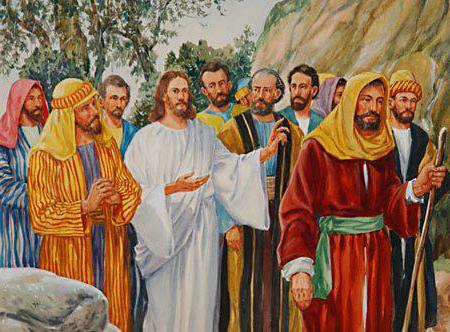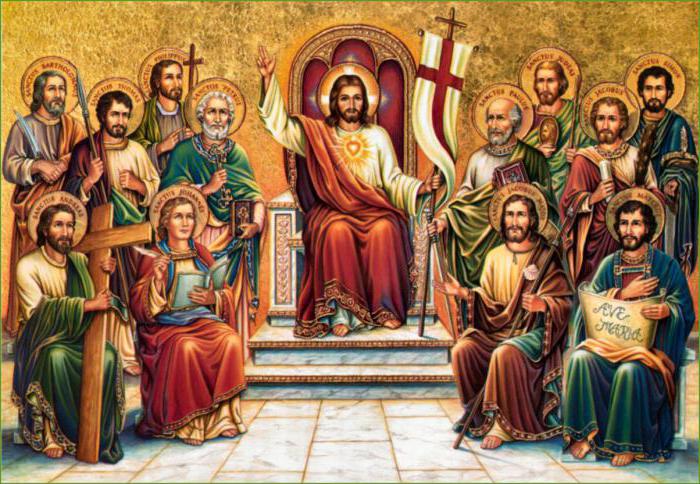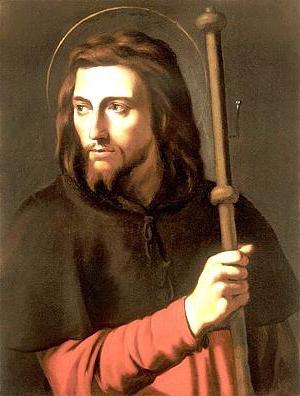Every year on November 29, an akathist to the Apostle James Alfeyev sounds in Russian churches. On this day, the memory of one of the closest disciples and followers of Jesus Christ is celebrated, which we learn about from pages written by three evangelists - Saints Matthew, Mark and Luke. From the little that they thought it necessary to tell us, we will try to compose an idea of this man who has devoted himself to God.
Publican from Capernaum
As is generally believed, the birthplace of the apostle Jacob Alfeev was the city of Capernaum, located on the shores of Lake Tiberias, now called Kinneret. This was largely due to his subsequent meeting with Jesus Christ, who chose this city as one of the main places of his sermons.
Before responding to the call of Jesus Christ to join his twelve closest followers and disciples, the apostle James Alfeyev was a publican, that is, a tax collector. This occupation was considered despicable because the money went to the treasury of Rome, which had conquered Judea in those years, and assistance to the invaders was at all times considered a betrayal. In addition, the tax collectors deliberately overstated the amount of tax and, profiting from this, ruthlessly robbed the people.
Brothers following Christ
According to the texts of the New Testament, the apostle James Alfeyev was the brother of the evangelist Matthew, just like he, who served as a publican, but then believed in Christ, and broke with the sinful past. Together, they became one of the twelve chosen ones of God, confined to the apostolic face and sent to the world to preach the gospel. In addition, his other brother was also a close follower of Jesus Christ and went down in history under the name of the Apostle Thaddeus.

It should be noted that even in the first centuries of Christianity, serious difficulties arose associated with the establishment of a true life story of the Apostle James Alfeev. The reason was that, according to the Gospel, two more closest followers of Christ bore this name - James Zavedeev, who was a brother to John the Theologian, as well as the half brother of Jesus, who was among the seventy apostles under the name of James, brother of the Lord. Numerous discrepancies that appeared in the later written lives of St. James Alfeyev were the result of his identification with these personalities.
The sower of the word of God
The Apostle Jacob Alfeev is one of those to whom Grace was granted, having personally seen the risen Savior, for forty days to hear the words of Divine truth coming from his lips. From the pages of the Holy Gospel, we also learn that, being on the tenth day after the ascension of Jesus Christ, along with the other eleven of his disciples and the Blessed Virgin Mary in the Upper Room of Zion, he was able to receive the Holy Spirit descended in the form of fiery tongues.
The life of the Apostle Jacob Alfeev tells of how, ignited by the fire of Christ’s teachings and assiduously planting faith, he began to be called the “Divine seed” during his lifetime. The apostle earned such a high name, uprooting the thorns of sin and unbelief and planting in human hearts the sprouts of the coming Kingdom of Heaven. His harvest was human souls saved from the depths of hell and eternal death.
The path of the apostolic ministry of Jacob Alfeev
It is also known from the pages of life in which regions the apostle James Alfeyev brought the gospel and where he sowed the word of God. In the first months after the ascension of Jesus Christ, Judea itself was its vast field, but then, together with the apostle Andrew, he went to Edessa - the most important center of early Christianity in Asia Minor, located in the southeast of modern Turkey. This period of his ministry is described in the book “Acts of the Apostles”, which is included in the texts of the New Testament.

Then the holy apostle continued his ministry in Gaza, one of the most ancient Philistine cities, located on the border with Judea, and which was part of Syria in gospel times. Returning to Jerusalem, the apostle James Alfeyev also preached to the inhabitants of the city of Eleutheropol, who gathered in crowds to hear from him the words of a doctrine giving eternal life. Their conversion to Christ was of particular importance, since it was in this city that Saint Ananias, the bishop of Damascus, who once baptized the Apostle Paul, was killed .
Death, the Beginning of Universal Honor
As the life of the Apostle Jacob Alfeev further testifies, his earthly path ended in the coastal city of Ostracin, where the saint turned out to be going with a sermon to Egypt. The words of the apostle were met with a flash of anger on the part of the Gentiles, as a result of which he was seized and sentenced to be crucified on the cross. Despite the severity of suffering, the closest disciple of Jesus Christ was happy to become like the Master in his death.

The veneration of the apostle Jacob, as well as the other closest followers of Jesus Christ, was established in the first centuries of Christianity and became widespread in the IV century, when the new and persecuted religion until that time gained official status. In those years, many Christian communities declared their succession directly from the apostles, thereby proving the right to independence in decision-making on the most important religious issues. This introduced additional difficulties in compiling the life of St. John Alfeev, as it caused a number of fictitious evidence of his stay in a number of cities.
Apostle Andrew on the banks of Volkhov
Having perceived the light of the Christian faith from Byzantium, Russia fully inherited the tradition of honoring its preachers - the holy apostles. In this regard, it is curious to note that the apostle Jacob enjoyed special love among the inhabitants of ancient Novgorod, and it was in his temples that the icon of the apostle Jacob Alfeev was found more often than anywhere else. This is due to two legends.
According to one of them, set out in ancient chronicle vaults, the Apostle Andrew the First-Called, turning to Christ of Gentiles, made a trip, during which he visited the Dnieper banks, and then continued on his way north to Novgorod. According to one version, according to Volkhov, he reached Lake Ladoga and even set up a cross on the island, where the Valaam monastery was subsequently founded . Perhaps this legend was born by the Novgorodians themselves, who wanted to prove the apostolic succession of their clergy.
The birth of a legend
Without starting to speculate about whether it has a real basis under it, we can only assume that this version gave rise to another legend, according to which, with the apostle Andrei, the apostle James also traveled to Novgorod once accompanying him to Edessa. A reasonable question: "Why couldn’t he do the same as his closest associate?" In any case, it was from Novgorod that the troparion of the apostle Jacob Alfeev and the Akathist translated from Greek began his journey through the churches of boundless Russia. As mentioned above, in our days, his memory is celebrated annually on November 29.
Let this article conclude with a short prayer to the Apostle James Alfeyev. In the humility of our hearts, we’ll say the words that have been heard for centuries: “Holy Apostle Jacob, pray to God for us!”